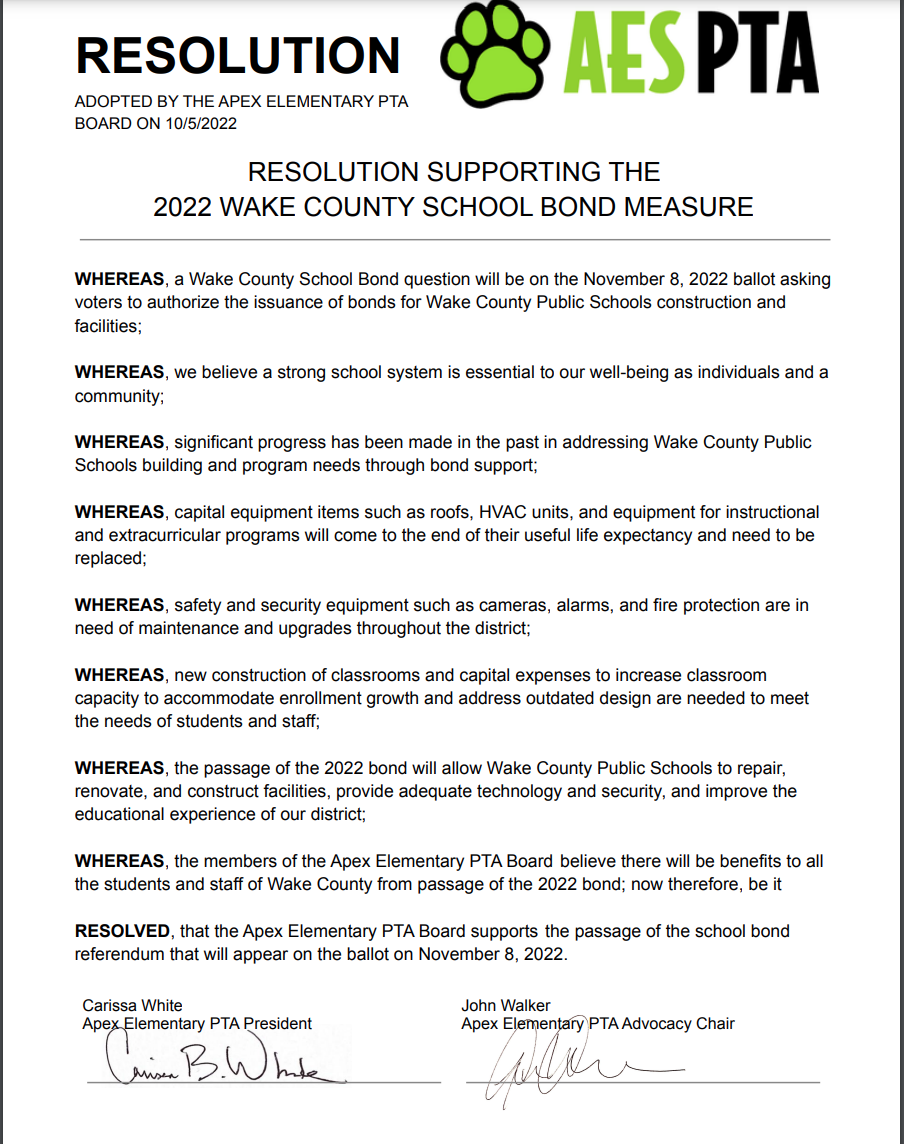Resolution Supporting the 2022 Wake County
On October 5, 2022, the Apex Elementary School PTA Board voted to approve the Resolution Supporting the 2022 Wake County School Bond Measure. See the Resolution below. We encourage all voting members of our community to vote for the bond on the November 8, 2022 ballot.
|
Search by typing & pressing enter


